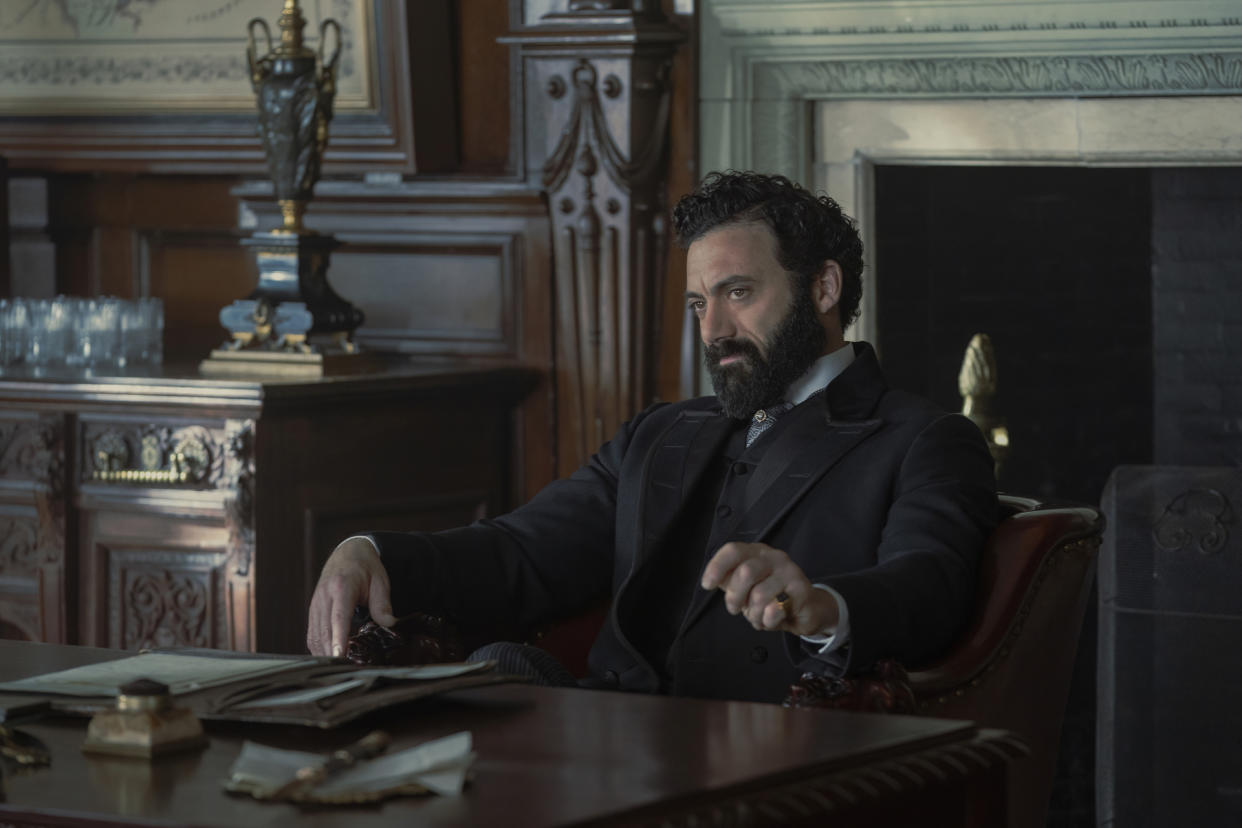Morgan Spector’s Union Support Runs in Contrast with His ‘Gilded Age’ Character: ‘I Think Everybody Saw the Actors and Writers Strikes as Inspiring’

On Season 2 of the HBO TV series “The Gilded Age,” a rather timely plotline seemed to run parallel to the real-life conflict actors and writers faced last summer on the picket lines. “New money” robber-baron George Russell, based loosely on railroad magnates Cornelius Vanderbilt and Jay Gould and played by actor Morgan Spector, when faced with strikes from the steelworkers’ union, chooses to use a soft touch despite being pushed toward violence. He manages to end a strike without injury and offers concessions to the workers, but his larger plans seem to be aimed towards breaking up the union entirely.
Like his character, Spector is interested in the business side of the entertainment industry as much as the creative elements, especially when it came to SAG-AFTRA and WGA fighting for what they deserve.
More from IndieWire
'Orphan Black: Echoes' Brought Back a Fan-Favorite Character in Episode 2
'House of the Dragon' Ep. 3 Review: Never Send a Man to Do a Woman's Job
“I feel like we had public support really solidly throughout, partly because I think unions are more popular than they’ve ever been,” Spector said of last year’s strikes in a recent piece for the Los Angeles Times. “Everybody’s realizing how unequal and unfair our economic moment is. And that if they don’t have the power to negotiate collectively, if they don’t have solidarity, they’re going to get screwed, and I think everybody kind of saw the actors and writers strikes, really, as a kind of inspiring thing.”
Having come from a theatrical background, Spector has had to adjust to working in film and television over the last few years with projects like “The Plot Against America” and “Boston Strangler.” While he loves the process of “digging into it” that theater offers, he has started to appreciate getting behind the lens more and more.
“The thing I have learned to love about working on camera is that you really can find these little things that you don’t know where they come from, or just a little way of getting through a scene that maybe you couldn’t have thought of, but it has this energy, or a thought occurred to you in a moment and you get it,” Spector said. “And you couldn’t probably do it again if your life depended on it. There’s an intuitive thing that’s happened, and it makes the moment work, it makes a scene work. You can’t keep that on the stage in the same way.”
Best of IndieWire
'Song of the South': 14 Things to Know About Disney's Most Controversial Movie
The 55 Best LGBTQ Movies and TV Shows Streaming on Netflix Right Now
A History of Unsimulated Sex Scenes in 17 Cannes Films, from 'Mektoub' to 'Antichrist' to 'Caligula'
Sign up for Indiewire's Newsletter. For the latest news, follow us on Facebook, Twitter, and Instagram.

 Yahoo News
Yahoo News 
